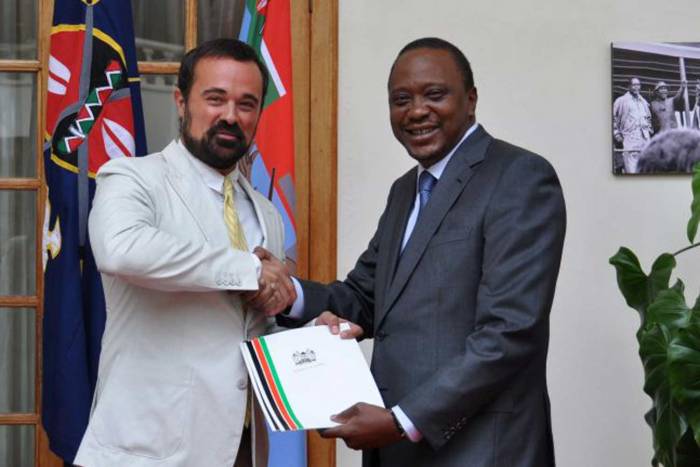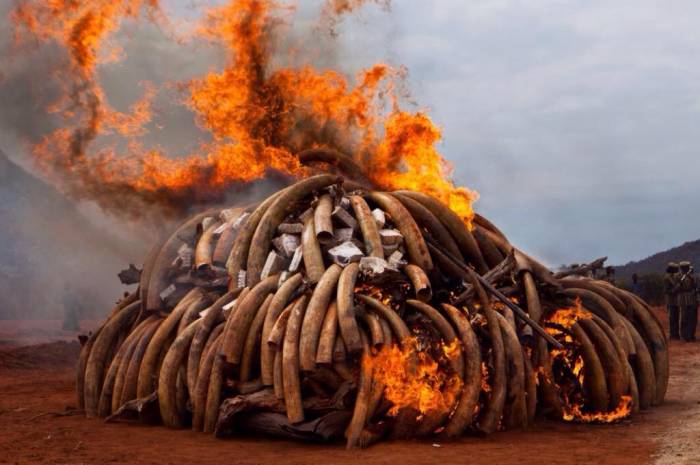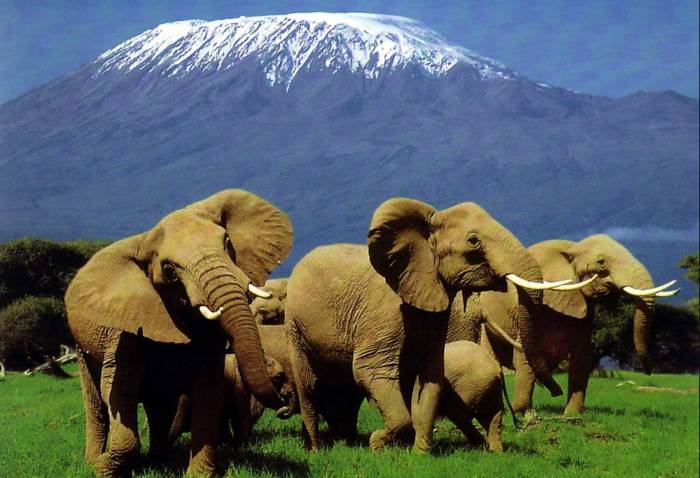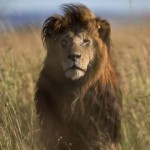
source
Kenyan President Uhuru Kenyatta is standing up for Africa’s elephants. Kenya has now become a founding member of the Giants Club – a pan-African group of leaders who are battling the illegal ivory trade – and officially committed to the Elephant Protection Initiative (EPI), a partnership that aims to protect elephants and stop the illegal ivory trade.
Taking a Stand
“Kenya has a long history of leading the way in Africa on wildlife issues and the step made by President Kenyatta today in joining the Giants Club, and as part of that committing Kenya to the EPI, continues that great and proud tradition,” said Evgeny Lebedev: the patron of the organization Space for Giants, which established the Giants Club. Kenya has taken extra precautions to conserve wildlife and has one of the highest penalties for illegal wildlife trafficking. In order to crack down on poaching, for the first time the nation conducted an independent inventory of their ivory stockpiles.

{adinserter CNP5}
Fires of Resistance
Back in 1989, Kenya took a stand against poaching by burning their ivory stockpile. President Kenyatta plans to repeat this ceremony by the end of the year. Kenya’s ivory stockpile is one of the biggest in the world and is believed to weigh more than 100 tons. Destroying it will make it harder for ivory to be stolen and released into the black market. Furthermore, this will be a symbolic gesture, signaling that ivory is commercially worthless. The underlying idea is that ivory is only worth something if it is on the animal. “We’ve got a big bonfire on the way,” Max Graham, the chief executive of Space for Giants, said. He also stated that the bonfire will be “one of a series of fires of resistance burning across the continent.”

A Serious Problem
Authorities are still counting the ivory supplies; this is expected to take a little more than a month. The rangers have begun to weigh the stockpiles that are held in the country’s government warehouses. They have discovered that some tusks are as heavy as 70kg. This ivory likely would have gone to Far East Asia. Ivory and rhino horns remain are highly valued in that region; one kilo of ivory can cost up to $3,000 in China. It is feared by many conservationists that the demand from this area will encourage poaching and continue to affect the elephant herds. If illegal ivory trade does not stop, the population will keep dwindling until elephants are extinct.








